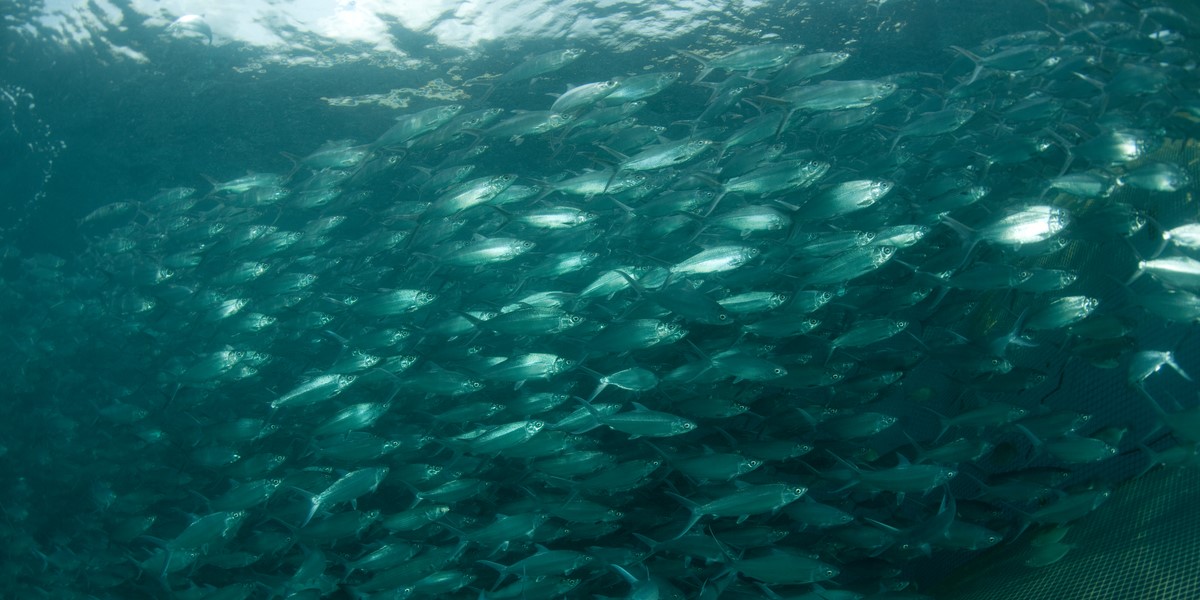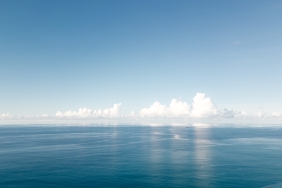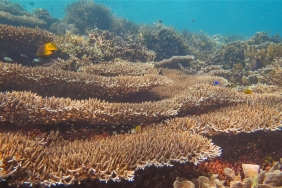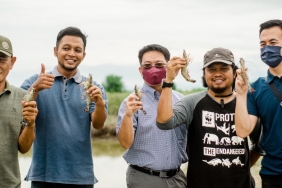SOCIALIZATION OF CBIB AND BMP TRAINING ON MILKFISH CULTIVATION FOR MURYA GROUP IN TAYU SUB-DISTRICT, PATI DISTRICT
By: M. Budi Santosa (Responsible Fisheries and Marine Conservation Senior Officer WWF-Indonesia), Rizky Satya Putra (AIP Local Facilitator Kab Pati), Agis Riyani (AIP Local Facilitator Java Island)
Located at Tunggulsari Village Hall, Tayu Sub-district, Pati Regency, on June 1, WWF-Indonesia together with the Institute for Development Resource Assessment and Development (LPPSP) Semarang and the Department of Marine Affairs and Fisheries (DKP) of Pati Regency and BBPBAP Jepara have conducted socialization on Good Fish Cultivation Practices (CBIB) as well as Training on Better Management Practices (BMPs) and Use of Water Quality Monitoring Tools for milkfish farmers group "MURYA". The training is a concrete manifestation of WWF-Indonesia's contribution and its local partner in JARING-Nusantara, LPPSP Semarang in order to help milkfish farmers in the area to produce milkfish that are more environmentally friendly in accordance with BMPs and CBIB.
The activity, which was attended by 19 members of the "MURYA" group, local village officials and 4 Pati District DKP staff, 1 Auxiliary Fisheries Extension Officer and 1 person from the Tayu District Integrated Fish Health Post (POSIKANDU), was packaged in a relaxed atmosphere full of togetherness. This was so that the participants and resource persons from DKP Pati and BBPBAP Jepara could immerse themselves in a warm discussion to build hope about milkfish farming in Pati District.
Although the farmers in this area have been doing their business for decades, their attitude and desire for new knowledge is quite high. This was evident from their many questions and enthusiasm when practicing how to use the water quality monitoring equipment demonstrated by WWF-Indonesia's Responsible Fisheries and Marine Conservation Senior Officer, M. Budi Santosa.
High Enthusiasm in Demanding Knowledge in Milkfish Cultivation BMP Training
The material provided by BBPBAP Jepara staff, Siswanto, on CBIB for milkfish farming has opened the minds of farmers about the importance of maintaining water quality and the aquaculture environment. Because all this time the farmers only rely on traditional knowledge without the touch of tools and technology, such as how to measure water salinity that relies on the tongue.
High enthusiasm was also seen in interesting discussions, when farmers asked about the need for certified nener, the need for biosecurity, and whether or not mangroves are needed in ponds. The presenters responded to these questions by explaining that the need for nener, biosecurity and mangroves must be in accordance with applicable regulations. As for Sriwati, the Head of Cultivation Section of DKP Pati Regency who delivered material on aquaculture business licensing and some of its provisions, increasingly making cultivators curious because they apparently do not have the completeness of the legality of the aquaculture business.
DKP of Pati expressed its gratitude to WWF-Indonesia because the Aquaculture Improvement Program (AIP) of milkfish cultivation in Tunggulsari Village has spurred the Government of Pati through DKP to target the MURYA Group of Tayu Sub-district to be a pilot project for the issuance of Fish Cultivator Business Registration Certificate (TPUPI) this year. The decision was made based on the provision that ponds with an average area of less than 5 hectares are not required to have a Fisheries Business License (SIUP) but only a TPUPI.
In general, the level of knowledge of cultivators about the material socialization and training participants increased from the original 43.5% based on the pre-test evaluation given before the activity, to 50% after the post-test evaluation after the activity was conducted. The participants hoped that this kind of training is often conducted to milkfish farmers in the Tayu area to increase their knowledge and skills. Networking with agencies such as POSIKANDU and BBPBAP Jepara is also highly anticipated to facilitate farmers' access to technology.
The follow-up of the AIP activities initiated by WWF-Indonesia and DKP Pati Regency is the formulation of an official cooperation in the form of a Cooperation Agreement for the implementation of AIP in milkfish cultivation in Pati Regency. It is expected that through the official cooperation, each party can share resources to implement the AIP of milkfish aquaculture in Pati Regency.





